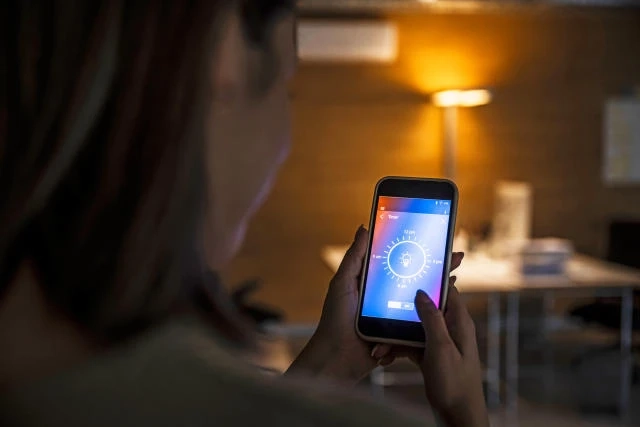Market Overview:
Smart light/lightning control refers to the use of advanced technologies to control and automate lighting systems. These systems offer various advantages such as energy efficiency, cost savings, convenience, and enhanced security. The need for smart light/lightning control products is driven by the increasing adoption of Internet of Things (IoT) technology and the growing demand for energy-efficient lighting solutions. These products find applications in residential, commercial, and industrial sectors.
Market Key Trends:
One key trend in the smart light/lightning control market is the integration of artificial intelligence (AI) and machine learning (ML) technologies. AI and ML algorithms are being incorporated into lighting control systems to optimize energy usage, improve efficiency, and provide personalized lighting experiences. These technologies enable the development of intelligent lighting systems that can automatically adjust brightness, color, and other parameters based on user preferences and environmental conditions. Additionally, AI and ML algorithms can analyze data from various sensors and sources to make accurate predictions and recommendations for efficient lighting control.
The global Smart Light/Lightning Control Market Size is estimated to be valued at US$ 21.03 billion in 2023 and is expected to exhibit a CAGR of 22.2% over the forecast period from 2023 to 2030, as highlighted in a new report published by Coherent Market Insights.
The market key trends content is not provided for the given market research report.
PEST Analysis:
Political: The political factors influencing the smart light/lightning control market include government regulations and policies related to energy efficiency and sustainability. For example, governments are increasingly promoting the use of energy-efficient lighting solutions to reduce carbon emissions and lower energy consumption.
Economic: The economic factors impacting the market include the overall economic growth and consumer purchasing power. As the economies of countries continue to grow, consumers are more willing to invest in smart lighting solutions. Additionally, the cost-effectiveness of these systems, with long-term energy savings, makes them an attractive choice for consumers.
Social: The social factors influencing the market include the growing awareness and concern for environmental issues. Consumers are becoming more conscious of their energy consumption and are actively seeking energy-efficient solutions. Moreover, the increasing use of smartphones and other smart devices has further contributed to the popularity of smart lighting systems.
Technological: The technological factors impacting the market include advancements in communication technologies and the Internet of Things (IoT). The integration of smart lighting systems with IoT enables users to control and customize their lighting settings remotely through their smartphones or other devices. Moreover, the incorporation of advanced sensors and lighting management systems has further enhanced the efficiency and functionality of smart lighting solutions.
Key Takeaways:
The global smart light/lightning control market is expected to witness high growth, exhibiting a CAGR of 22.2% over the forecast period (2023-2030). This growth can be attributed to several factors, including increasing government regulations promoting energy efficiency, growing consumer awareness of environmental issues, and advancements in communication technologies.
Regionally, North America is expected to be the fastest-growing and dominating region in the smart light/lightning control market. This can be attributed to the presence of key market players, such as Cisco System Inc., Schneider Electric, and Honeywell International Inc., who are driving innovation and technological advancements in the region.
Key players operating in the smart light/lightning control market include Cisco System Inc., Schneider Electric, Wipro Consumer Lighting, Avnet Inc., Crestron Electronic Inc., Honeywell International Inc., Inventronics Inc., Philips Lighting Holding B.V. (Signify Holding), Legrand, and Jaquar India. These companies play a crucial role in driving market growth through their focus on product development, strategic partnerships, and expanding their geographical presence.



